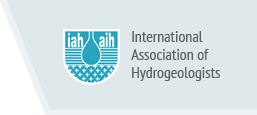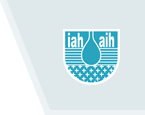Library of MAR water quality policies, regulations and guidelines
This is a dynamic list of resources and the working group welcomes references to relevant missing materials from all countries and jurisdictions.
Australia
Managed Aquifer Recharge Guidelines (2009) – national guidelines as part of the National Water Quality Management Strategy
NRMMC, EPHC, NHMRC (2009). Australian Guidelines for Water Recycling, Managing Health and Environmental Risks, Volume 2C – Managed Aquifer Recharge. Natural Resource Management Ministerial Council, Environment Protection and Heritage Council National Health and Medical Research Council, NWQMS Document 24, Jul 2009, 237p. (1.6 Mb)
These Guidelines are to protect human health and the environment at MAR operations for all sources of water, aquifer types, recharge method and end use of water. These are based on risk assessment and preventive measures to manage risk. They account for changes in water quality in the aquifer. They adopt a staged approach to investigations and assessment to ensure safe MAR.
Europe
marsol_8-6_d17-5_policy-document-for-decision-makers_2017–
MARSOL Managed Aquifer Recharge – Policy document for decision makers (2017)
“The Water Framework Directive (WFD, 2000/60/EC) considers artificial recharge of groundwater as one of the management tools that can be used by EU Member States for the achievement of good groundwater status. Article 11(3)(f) of the Directive requires the establishment of “controls, including a requirement for prior authorization of artificial recharge or augmentation of groundwater bodies”. This report proposes a uniform regulatory framework that complies with both the WFD and the Groundwater Directive and involves risk assessment, preventive measures and monitoring. This is a 9p summary report arising from the EC research project MARSOL.
India
A water quality guide to MAR in India (2014)
Dillon P., Vanderzalm, J., Sidhu, J., Page, D., Chadha, D. (2014). A Water Quality Guide to Managed Aquifer Recharge in India. CSIRO Land and Water and UNESCO Report of AusAID PSLP Project ROU 14476. 34p+appendices (1 Mb)
The purpose of this Guideline is to provide simple steps that can be applied by people without specialist expertise in villages of India to improve the protection of their aquifer from contamination arising from recharge operations. This guidance follows a WHO water safety planning approach and uses a simple checklist to make groundwater as safe as can be determined based on visual observations. These guidelines must not be used for recharge of treated urban and industrial waste-waters. These would require extensive water quality analyses to perform risk assessment and management, including selecting water treatment trains to assure water safety. The Australian Guidelines could be used in these cases.
USA
– California – …
– New Mexico – contributed March 2018 by Amy Ewing, Daniel B. Stephens & Associates, Inc.
TITLE 19, CHAPTER 25, PART 8 UNDERGROUND STORAGE AND RECOVERY
New Mexico Natural Resources and Wildlife, Administration and Use of Water – General Provisions
http://www.nmcpr.state.nm.us/uploads/nmac/19/19.025.0008.pdf
The link above is to the New Mexico underground storage and recovery (USR) regulations, which went into effect in 2001 and govern the application process and requirements, permit terms, and conditions for projects. NMAC stands for New Mexico Administrative Code.
In New Mexico, USR permits are required for recharge projects, and these permits are administered by the New Mexico Office of the State Engineer (OSE). The OSE requires that each USR project be tested first as a demonstration project. If successful, the applicant may apply for a full-scale permit. The New Mexico Environment Department (NMED) also requires discharge (ie recovery) permits for some projects, and is seeking to require them for all projects in the future. The New Mexico Water Quality Control Commission (WQCC)’s is considering whether NMED can require discharge permits for all recharge projects now. There are no water quality standards specific to MAR projects in New Mexico; however, no recharge project may degrade groundwater quality or cause any exceedences of the applicable State or Federal water quality standards.
Appendix A of these regulations shows the required content of a Hydrologic, Technical and Financial Capability Report for an Underground Storage and Recovery Permit.
Relevant Reviews
Yuan, J., Van Dyke, M.I. and Huck, P.M. (2016). water reuse through managed aquifer recharge (MAR): assessment of regulations/guidelines and case studies. Water Quality Research Journal of Canada 51(4) 357-376.


